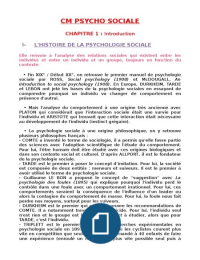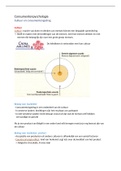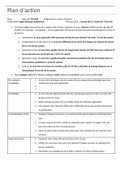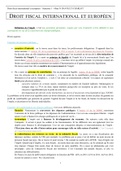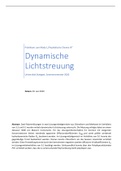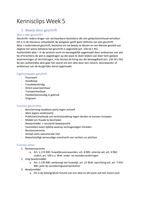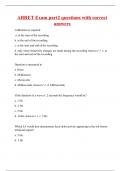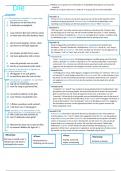Ju-Mari Pretorius
Student number: 63992256
ADULT DEVELOPMENT: ASSIGNMENT 1
In your own words, briefly discuss the interactive forces that shape
individuals' development. Also, explain how normative and non-normative
influences determine the degree to which these interactive forces are common
or unique to an individual’s development.
Certain forces mould us as individuals, causing us to modify our personality traits
and experience life changes. The differences in biotic and psychological domains
during the course of a human lifespan are referred to as development. These
changes might be gradual or rapid, and they can resemble good, negative, or no
change from previous levels of performance. According to Blanchard-Fields (2018),
developmentalists identify four interconnected forces that determine individual
development: biological, psychological, sociocultural, and lifecycle. Biological forces
are defined as any non-social factor that influences the evolution of one's body and
intelligence, such as diet or isometrics, that has an impact on human development. It
includes factors related to our health and genetics. These factors are related with the
maturation of the human body, and it occurs in the body even after the adolescent
years. Hereditary impacts, chemistry, hormone heights, nutrition, and gender are
some of the physical force aspects. Complex biological factors, such as sexual
maturity and menopause affect individuals throughout generations, but others, such
as nutrition or sickness affect only effect a limited number of people. Psychological
forces encompass all internal perceptual, emotional, cognitive, and personality
aspects that influence one's growth, as well as the characteristics that distinguish
persons. It is a collection of thoughts, emotions, and behavioural shifts that marks
our passage into adulthood (Blanchard-Fields, 2018). Our bodies foster and
emanate experience and understanding of how the world is increasingly multifaceted
as we grow older. Psychological influences, like biological forces, can affect all
people, certain generations, or just a few people. Sociocultural influences, which
encompass interpersonal, societal, cultural, and ethnic elements that give the broad
circumstances in which we develop, are another significant interaction force that
shapes our development (Blanchard-Fields, 2018). To elaborate on the concept of
culture, it refers to a group of people's connection, attitude, and mannerisms. The
background or framework for change is provided by sociocultural influences. Morals,
habits, and practices are some of the forces discussed (Blanchard-Fields, 2018).
How individuals calibrate their adulthood or engagement in the social order is often



